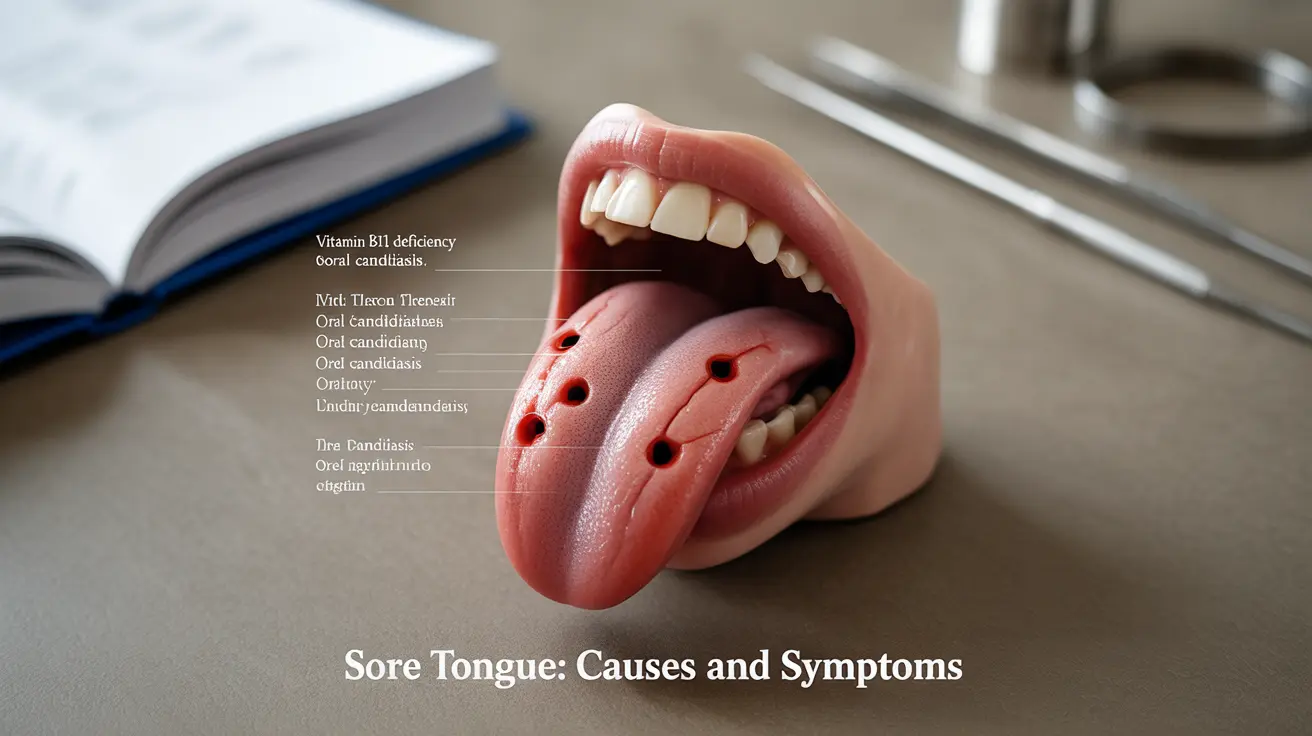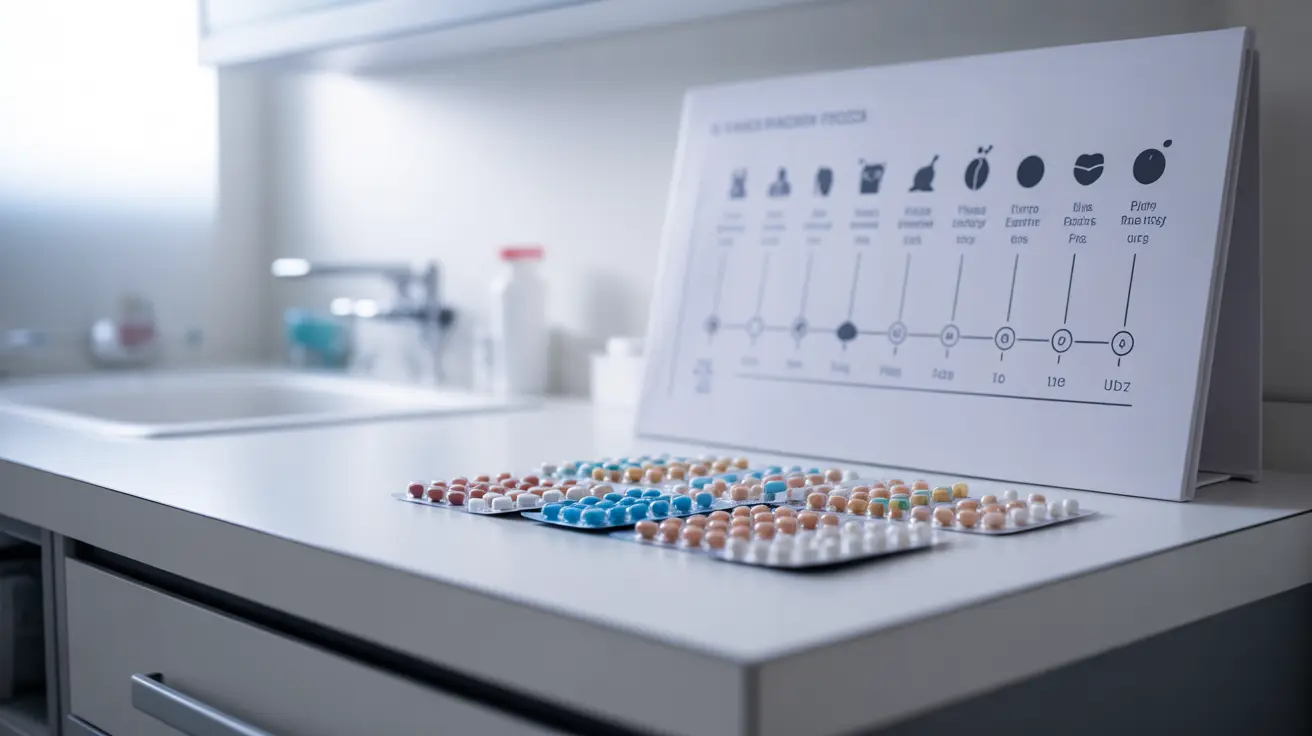Glossitis is a condition that affects the tongue, causing inflammation and changes in its appearance and function. This oral health issue can significantly impact daily activities such as eating and speaking, making it essential to understand its symptoms, causes, and available treatments. In this article, we'll explore the various aspects of glossitis, including how to recognize it, what factors contribute to its development, and the most effective ways to manage and prevent this condition.
What is Glossitis?
Glossitis refers to inflammation of the tongue, which can result in swelling, redness, and changes in the tongue's surface texture. This condition can occur suddenly (acute glossitis) or develop over time (chronic glossitis), each presenting unique challenges and requiring different approaches to treatment.
Recognizing the Symptoms of Glossitis
Identifying glossitis early is crucial for effective management. Common symptoms include:
- Swollen or enlarged tongue
- Smooth, red, or pale appearance of the tongue
- Changes in color, from bright red to purplish
- Loss of tongue papillae (the small bumps on the tongue's surface)
- Pain or tenderness in the tongue
- Difficulty speaking, eating, or swallowing
These symptoms can vary in severity and may appear suddenly or develop gradually over time. If you experience persistent tongue discomfort or notice significant changes in your tongue's appearance, it's important to consult a healthcare professional for proper diagnosis and treatment.
Causes and Risk Factors for Glossitis
Glossitis can arise from various factors, including:
Nutritional Deficiencies
Deficiencies in certain vitamins and minerals, particularly iron, vitamin B12, and folate, can contribute to the development of glossitis. These nutrients play crucial roles in maintaining healthy tongue tissue and overall oral health.
Allergic Reactions
Exposure to certain foods, medications, or dental products can trigger allergic reactions that manifest as glossitis in some individuals. Common allergens include nuts, shellfish, and certain food additives.
Infections
Bacterial, viral, or fungal infections can lead to tongue inflammation. Oral thrush, a yeast infection caused by Candida albicans, is a frequent culprit in glossitis cases.
Irritants and Trauma
Direct injury to the tongue, exposure to hot foods or beverages, and contact with irritating substances (such as strong mouthwashes or tobacco) can cause acute glossitis.
Treatment Options for Glossitis
The treatment approach for glossitis depends on its underlying cause and severity. Common treatments include:
Addressing Nutritional Deficiencies
If glossitis is linked to nutritional deficiencies, supplementation or dietary changes may be recommended. Iron supplements for iron-deficiency anemia or vitamin B12 injections for B12 deficiency can help resolve symptoms.
Medications
Various medications may be prescribed to manage glossitis symptoms:
- Antihistamines for allergic reactions
- Antifungal medications for yeast infections
- Antibiotics for bacterial infections
- Corticosteroids to reduce inflammation in severe cases
Topical Treatments
Over-the-counter or prescription topical treatments, such as oral gels or rinses, can help alleviate pain and promote healing of the tongue's surface.
Preventing Glossitis: Lifestyle and Oral Hygiene Tips
While not all cases of glossitis are preventable, certain measures can reduce your risk:
- Maintain good oral hygiene by brushing twice daily and flossing regularly
- Use a soft-bristled toothbrush to avoid irritating your tongue
- Avoid known allergens and irritants
- Quit smoking and limit alcohol consumption
- Eat a balanced diet rich in essential vitamins and minerals
- Stay hydrated to keep your mouth moist
Acute vs. Chronic Glossitis: Understanding the Differences
Acute glossitis typically develops suddenly and is often associated with allergic reactions or injuries. It usually resolves quickly with appropriate treatment. Chronic glossitis, on the other hand, persists over time and may be linked to ongoing nutritional deficiencies, chronic infections, or underlying health conditions. The distinction between acute and chronic glossitis can influence treatment approaches and long-term management strategies.
Frequently Asked Questions
What are the symptoms of glossitis and how does it affect daily activities like eating and speaking?
Glossitis symptoms include tongue swelling, redness, smoothness, and pain. These can significantly impact daily activities by making it difficult to eat, speak, or swallow comfortably. The swollen tongue may interfere with proper articulation, while pain and sensitivity can make consuming certain foods challenging.
How is glossitis treated, and what medications are commonly used to relieve its symptoms?
Treatment for glossitis depends on its cause but may include antihistamines for allergic reactions, antifungals for yeast infections, or antibiotics for bacterial infections. Corticosteroids might be prescribed for severe inflammation. Over-the-counter pain relievers and topical oral gels can help manage discomfort. In cases of nutritional deficiencies, supplements may be recommended.
Can nutritional deficiencies, such as iron deficiency, cause glossitis, and how can they be addressed?
Yes, nutritional deficiencies, particularly in iron, vitamin B12, and folate, can cause glossitis. These deficiencies are addressed through dietary changes and supplementation. Iron supplements may be prescribed for iron-deficiency anemia, while vitamin B12 injections or oral supplements can correct B12 deficiency. A balanced diet rich in these nutrients can help prevent recurrence.
How can practicing good oral hygiene and avoiding irritants help in preventing glossitis?
Good oral hygiene helps prevent infections that can lead to glossitis. Regularly brushing, flossing, and using an alcohol-free mouthwash can maintain a healthy oral environment. Avoiding known irritants such as spicy foods, hot beverages, tobacco, and harsh mouthwashes reduces the risk of tongue inflammation. Using a soft-bristled toothbrush also helps prevent mechanical irritation of the tongue.
What is the difference between acute and chronic glossitis, and how do they impact treatment options?
Acute glossitis develops suddenly and is often caused by allergic reactions or injuries. It typically resolves quickly with targeted treatment. Chronic glossitis persists over time and may be due to ongoing issues like nutritional deficiencies or systemic diseases. Treatment for acute glossitis focuses on immediate symptom relief and addressing the specific cause. Chronic glossitis management involves long-term strategies to address underlying conditions and may require ongoing medical supervision.




